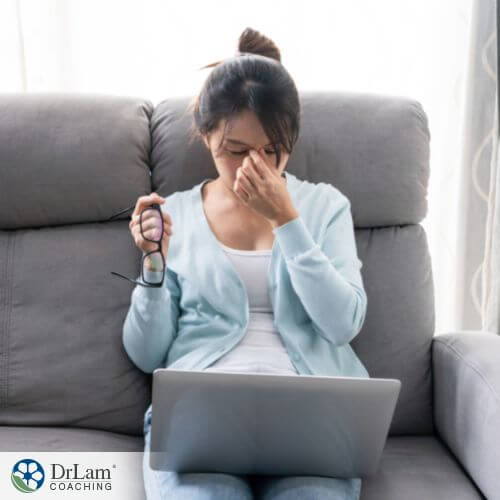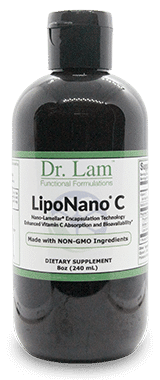 Do you feel tired all the time? Do you ignore your tiredness because you’re busy with work, relationships, kids, and other responsibilities? Feeling tired all the time isn’t normal, no matter how much you multitask or how many responsibilities you have. In our society, fatigue in women is often ignored or even seen as normal. But it shouldn’t be.
Do you feel tired all the time? Do you ignore your tiredness because you’re busy with work, relationships, kids, and other responsibilities? Feeling tired all the time isn’t normal, no matter how much you multitask or how many responsibilities you have. In our society, fatigue in women is often ignored or even seen as normal. But it shouldn’t be.
You don’t have to neglect your body in order to take care of others. In fact, if you don’t take care of yourself first, then you won’t be able to take care of anyone else properly. This is why you should never ignore fatigue. Instead, you need to seek out the root cause of your fatigue and find solutions that work. In fact, constant fatigue in women is often the result of adrenal fatigue. And alleviating this fatigue can help you live a happier, healthier life.
Many women don’t look at fatigue as something that should be corrected or even worried about. This is partly because of society’s view on fatigue in women. In our current society, women often hold many roles. They’re mothers, wives, friends, daughters, and sisters on top of working, studying, and other responsibilities. It may seem normal to feel tired by all of this. However, if you’re healthy and have a healthy lifestyle, then you really shouldn’t feel tired all the time.
When a woman is constantly tired, it usually means that there’s an underlying issue. And these issues shouldn’t be ignored. It’s almost impossible for you to care for others properly if you aren’t well yourself. So, if you’re going to fulfill all of your roles adequately, then you need to look after your own needs first.
Fatigue, as well as numerous other health issues in women, are often symptoms of adrenal fatigue.
The most common symptoms associated with adrenal fatigue in females include the following:
There are numerous factors that can cause fatigue in women and many of them get worse over time if ignored. Here are some of the most common causes:
Both an overactive and an underactive thyroid can cause problems with your energy levels. An underactive thyroid will leave you feeling sluggish, and an overactive one will drive you to burnout. Thyroid problems most commonly affect middle-aged women, but they can occur in anyone, so ask your doctor about a blood test to find out if you are concerned your thyroid is not working properly.
Some symptoms that can occur with thyroid problems include:
You should get all the nutrients that your body needs from your diet. So, if your diet is inadequate, then it makes sense that you would feel tired and low on energy. It may also cause nutritional deficiencies, which are more common than most people think. So talk to your doctor and get tested if you think that deficiencies may cause or contribute to your fatigue.
If you drink lots of soda, energy drinks, caffeinated drinks, or alcohol, you may be dehydrated, which can cause fatigue. These and certain foods take more water to process than they contribute. Drinking more water is the best fix.
Most people need between 7-8 hours of uninterrupted, quality sleep every night. And if you aren’t getting this amount, it can lead to serious health problems as well as ongoing fatigue and low energy.
Sleep disorders such as sleep apnea can also cause fatigue. When you have sleep apnea, you snore, and your breathing is interrupted throughout the night. You may sleep through all of this, but you won’t feel rested when you wake up. Your energy levels will remain low. Sleep apnea can also impact your heart health and cause weight gain, which may increase your fatigue levels further.
 Depressed people often experience fatigue as well as other issues that cause fatigue such as insomnia. Anxiety takes a lot of mental and emotional energy, and it can interrupt sleep as well. So, if your mood is often low, then it’s worth considering depression or anxiety as a cause of your tiredness.
Depressed people often experience fatigue as well as other issues that cause fatigue such as insomnia. Anxiety takes a lot of mental and emotional energy, and it can interrupt sleep as well. So, if your mood is often low, then it’s worth considering depression or anxiety as a cause of your tiredness.
If you’re tired, you might not feel like exercising, but you should consider it. Exercise increases blood circulation and improves the health of your cardiovascular system. This can help improve your sleeping patterns and increase your energy levels.
However, if you have adrenal fatigue, be aware that over-exercising is a risk. If you exercise and feel more fatigued, then it’s better to focus on gentle exercises like yoga and walking until your body is stronger. Over-exercising can actually act as a stressor on the body and worsen fatigue.
Women need to consume more iron because of uniquely female issues like menstruation, menopause, and pregnancy. However, many women aren’t getting the amount they need, which can result in anemia. This can be detected through a blood test. Anemia may cause symptoms like weakness and fatigue.
Heart disease is more common among women than most people think. When you have heart disease, your heart weakens and starts to struggle to pump blood around your body. This will cause you to feel fatigued.
Vitamin D is essential for several essential bodily functions. However, many people suffer from a vitamin D deficiency these days because they:
If you think you have a vitamin D deficiency, then talk to your doctor and get tested. If a deficiency is found, you may need to make dietary changes or take supplements.
Studies show that excess body weight can negatively affect sleep quality. Belly fat in particular is problematic as it produces proteins that increase inflammation, which in turn affects sleep quality. Obesity can also contribute to sleep apnea, which will further impact your sleep quality and your daily fatigue levels.
When you’re stressed, your cortisol levels increase, which can lead to health issues such as weight gain, low energy, and poor sleeping patterns. This can naturally contribute to fatigue in women. The body is designed to handle short-term spikes in cortisol levels, during a fight-or-flight response, but after the threat is over it needs to return to a rest-and-digest response to perform key repair functions. When stress is ongoing, these essential functions are not performed, and problems can develop. This can lead to adrenal fatigue and related issues.
Correcting fatigue in women is often difficult. First, it's important to visit your doctor for testing to ensure that an underlying health issue isn’t causing your tiredness. However, once you’ve done that, you need to look at your lifestyle and identify what could be causing your fatigue.
Here are some changes you should think about making:

Some supplements may help. In this case, it’s best to opt for natural supplements instead of synthetically manufactured supplements. Many of these also have adaptogenic properties that have a calming, balancing effect.
Vitamin C is a vital nutrient that human bodies are unable to make, but is important for adrenal function. It supports the production of cortisol, the stress hormone, and many other hormones like estrogen, progesterone, DHEA, testosterone in the adrenals. Liposomal Vitamin C is the best type of Vitamin C to take as it’s fat soluble and can be readily absorbed by the small intestines. Rather than being excreted in the urine like common over the counter water-soluble supplements, liposomal vitamin C is absorbed at much higher amounts due to it’s lipid layer surrounding the molecule. It passively diffuses through the small intestine, so the body does not expend as much energy to intake the vitamin C, making it ideal for adrenal fatigue sufferers. Liponano C has been specially formulated by Dr. Lam for those with adrenal fatigue to maximize absorption without sacrificing energy.
Vitamin B5, also known as Pantothenic acid, is another key nutrient that the adrenals need to make all hormones. Together with vitamin C, cholesterol is able to be converted into pregnenolone and then into the other hormones. Pantethine is the physiologic compound that gets converted from pantothenic acid to be utilized in the energy cycle. Dr. Lam’s Pandrenal is key to having pantothenic acid and pantethine along with key amino acids to help the adrenal function optimally.
An adaptogenic herb, according to studies, Rhodiola can alleviate fatigue and enhance both physical and mental performance. The herb may also help address depression, a condition associated with fatigue. Furthermore, the herb does not have the same side effects commonly associated with antidepressants and is better tolerated by the body.
A staple in Ayurvedic medicine, this adaptogen may help increase your energy levels and combat fatigue by enhancing your body’s natural stress response. Furthermore, ashwagandha may help reduce your cortisol levels, thereby supplying adrenal support. For the best absorption, the fermented form of ashwagandha is best utilized for adrenal fatigue sufferers that have weaker gut systems. Dr. Lam’s Fermplex A contains good probiotics due to the fermentation process and also provides ashwagandha in a broken down format that allows ease of digestion and absorption.
You should only use supplements with the advice of your healthcare provider. Supplements may interact with certain medications and may not be suitable if you have underlying health conditions. Some people may also have side effects when using supplements. These include, amongst others, an upset stomach, headaches, and sleeping issues. If these symptoms occur, please stop using the supplement and contact your healthcare provider about the problem.
One possible cause of fatigue in women that’s often overlooked is Adrenal Fatigue Syndrome (AFS). This can occur when you’re stressed over the long term, causing a slew of symptoms, including hormone imbalances, salt cravings, unexplained weight gain, and fatigue.
It happens due to the overuse of the NeuroEndoMetabolic (NEM) stress response, the body's reaction to stress. This system, composed of six circuits of related organs and systems, works together to manage stress. It also causes the release of cortisol from your adrenal glands.
The high cortisol levels then cause changes in your body’s circuits. These changes are designed to help you survive during stressful times. However, this system is designed to be short-term. When the NEM stress response is active for a long period, the high cortisol levels become damaging. They force the body’s circuits to remain in an overactive state and they can become dysfunctional, resulting in a range of symptoms and health problems. The adrenal glands can also become fatigued and start to malfunction due to the high demand for cortisol, leading to further health problems and worsening symptoms and problems associated with AFS.
AFS and the resulting health problems and imbalances can cause ongoing fatigue that is difficult to identify and resists attempts to alleviate it. There are also more specific issues that occur with AFS that can result in fatigue. These often have to do with the Hormone Circuit.
One of the Hormone Circuit’s primary duties is to produce a variety of hormones that are essential for the body’s functioning. It consists of the thyroid, the ovaries in women, and the adrenal glands. These three components in this circuit are interconnected, and when one of them declines in health, it affects the others.
This disorder is not yet accepted by the medical establishment, so if you believe that it may be contributing to your fatigue, be sure to talk to a medical professional who’s aware of the issues that AFS can cause.
AFS can cause several issues that contribute to fatigue in women including:
In AFS, the adrenal glands become fatigued and start to malfunction, first producing chronically high cortisol, and then eventually producing overly low cortisol levels. Cortisol is created from many of the same nutrients and precursor hormones as other key hormones, such as estrogen. This causes imbalances in other hormone levels and worsens feelings of fatigue.
As the adrenal glands fatigue and become dysfunctional, thyroid function declines as well. The thyroid gland is responsible for metabolism and body temperature, so as its function declines, your energy levels will naturally decrease as well.
Low thyroid function can also contribute to weight gain, which may cause further fatigue.
When you’re stressed, reproduction isn’t important, so the libido declines, and the hormones that control the reproductive cycle become unbalanced as well. This can cause issues such as estrogen imbalance, PMS, and weight gain, which contribute to fatigue.
One of the main tools for identifying the cause of adrenal fatigue in women is by looking at the symptoms. If you have some of the symptoms mentioned, please consult a healthcare provider. They may make use of different tests to establish whether you have the condition.
One of these tests examines cortisol levels. Testing your blood, saliva, or urine will indicate whether you have normal, low, or high cortisol levels. However, often a single blood test does not fully account for daily variations in cortisol levels. Urine or saliva testing may be preferred, with up to five samples a day required to help establish cortisol level fluctuations during the day.
If adrenal fatigue goes unidentified, you may progress to further stages of adrenal fatigue, each with compounded, serious health issues.
 It’s important that you talk to a reputable medical professional if you believe that AFS may be causing or contributing to your fatigue.
It’s important that you talk to a reputable medical professional if you believe that AFS may be causing or contributing to your fatigue.
However, you also need to be careful if you’re trying to make lifestyle changes when you have AFS. Even positive changes can increase your stress levels, further fatiguing the adrenal glands and worsening your overall condition. Overly intense exercise and new supplements both commonly backfire on those with AFS, increasing the need for cortisol or causing paradoxical reactions. This is why it is essential to start slowly and be very gentle with your body if your fatigue is due to AFS.
The best way to manage AFS is to work with a medical professional who has experience with the condition. They will be able to help you make diet and lifestyle changes slowly and carefully, in a way that doesn’t cause additional stress.
Fatigue in women shouldn’t be ignored. In fact, it can be a sign of serious health issues as well as a warning sign that you are under too much stress. Ongoing fatigue will also make you less effective in every arena of your life, making it hard for you to fulfill your responsibilities, whatever they might be. That’s why you need to take action early, to avoid long-term problems. Here’s what you can do to start addressing this problem:
Women shouldn’t have to put up with ongoing fatigue. Don't let adrenal fatigue take over your life; take control with Dr. Lam's Adrenal Fatigue Recovery Program! This course offers a comprehensive guide that includes supplement education, a curated list of foods to eat, specific exercises, and much more to help you reclaim your vitality. Sign up today and start your journey towards feeling better, stronger, and more energetic than ever before!

LipoNano C: Reclaim Energy & Vitality for Women's Fatigue
Mathis, Bryan J. “The Intricate Web of Fatigue in Women.” Women, vol. 1, no. 4, MDPI, Dec. 2021, pp. 267–79. https://doi.org/10.3390/women1040023.
Hung, Shao-Kang, et al. “The Effectiveness and Efficacy of Rhodiola Rosea L.: A Systematic Review of Randomized Clinical Trials.” Phytomedicine, vol. 18, no. 4, Elsevier BV, Feb. 2011, pp. 235–44. https://doi.org/10.1016/j.phymed.2010.08.014.
Bendahan, David, et al. “Citrulline/Malate Promotes Aerobic Energy Production in Human Exercising Muscle.” British Journal of Sports Medicine, vol. 36, no. 4, BMJ, Aug. 2002, pp. 282–89. https://doi.org/10.1136/bjsm.36.4.282.
Gharibzadeh, Shahriar, and Sayed Shahabuddin Hoseini. “The Potential Role of Nitric Oxide Metabolites in Diagnosing Chronic Fatigue Syndrome.” Medical Hypotheses, Elsevier BV, Jan. 2006, https://doi.org/10.1016/j.mehy.2006.01.040.
Women in the modern world play a variety of roles and are often masters at doing lots of things at once. With all this multitasking, fatigue in women is a very common complaint and it’s one that many people ignore. But it's not normal, and it can be a sign of other health conditions. Here's what to do instead.